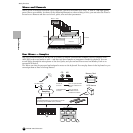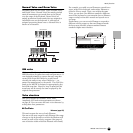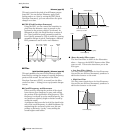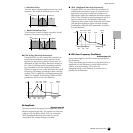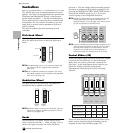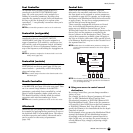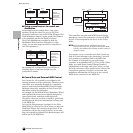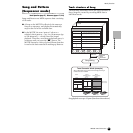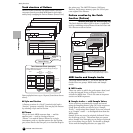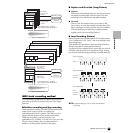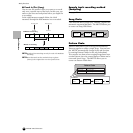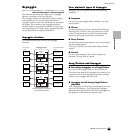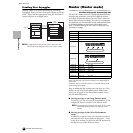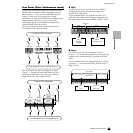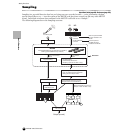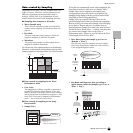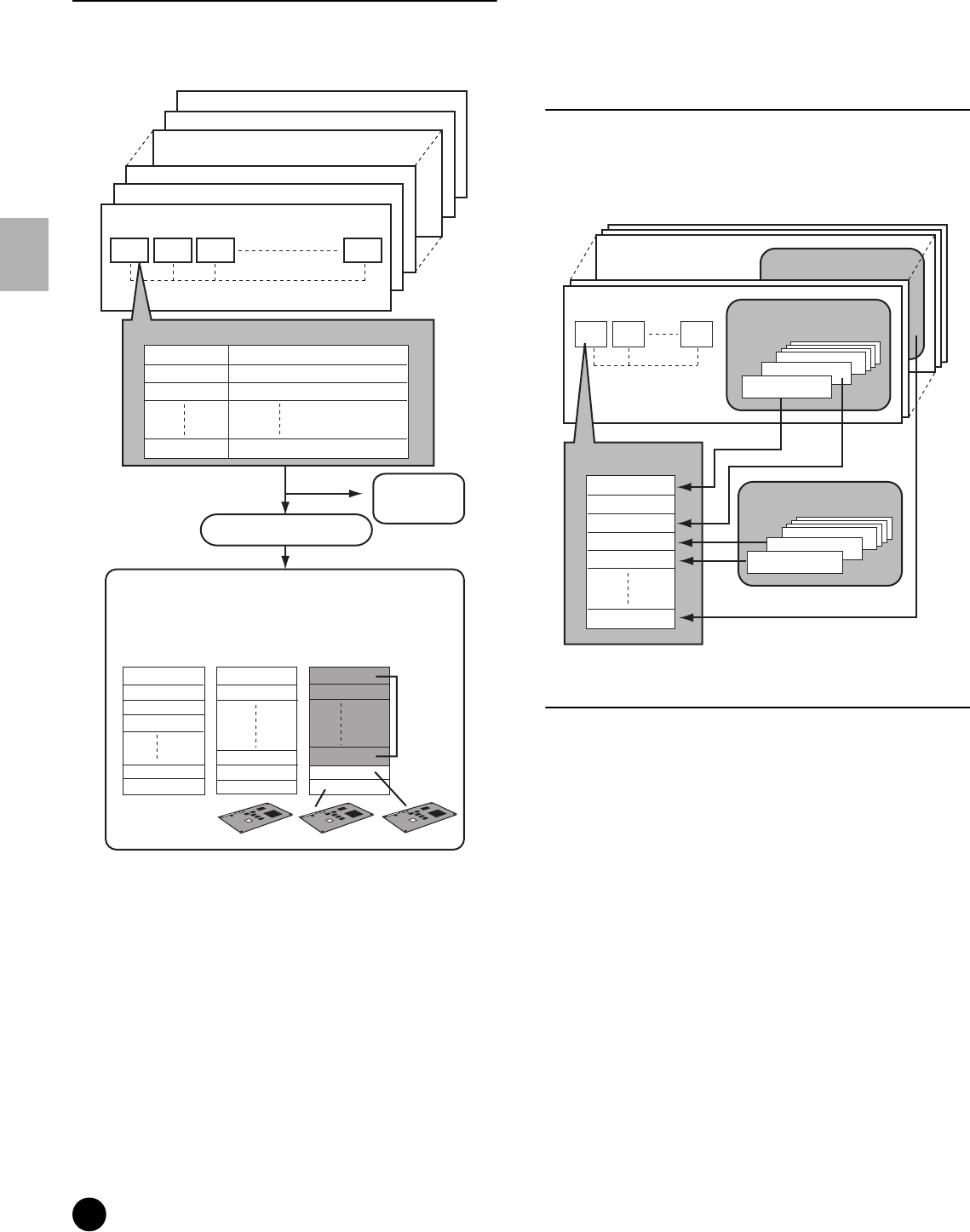
52
MOTIF Basic Structure
Main functions
Basic Structure
Track structure of Pattern
Patterns consist of Phrases (as shown below), and you
can create them by recording MIDI data for each track,
and by freely arranging the various Phrases (Preset/User).
Pattern playback uses up to 16 parts (from those shown
above).
■ Style and Section
A Pattern consists of a “Style” (musical style) and a
“Section” (pattern variation). You can play the Pattern
by selecting a Style and its Section.
■ Phrase
This is the basic MIDI sequence data — and the
smallest unit — used in creating a Pattern.
“Phrase” is a musical Pattern Phrase for a single
instrument, such as a rhythm pattern for the rhythm
part, a bass line for the bass part, or a chord backing for
the guitar part. The MOTIF features 128 Preset
Patterns, and features memory space for 256 of your
own original User Phrases.
Pattern creation by the Patch
function (Pattern)
Quick Start Guide (page 105) · Reference (page 219)
The Patch function allows you to create a “composite”
style by combining various Phrases from the Preset and
User Phrases as shown below.
MIDI tracks and Sample tracks
The Song/Pattern tracks (1 - 16) of the MOTIF are
divided into two groups: MIDI tracks and Sample
tracks.
■ MIDI tracks
These are tracks in which the performance data (used
to play the internal Voices or Plug-in Voices) is
recorded as MIDI data. This is the same as sequence
tracks on a MIDI sequencer.
■ Sample tracks — with Sample Voices
Voices which are automatically created and stored
using the Sampling feature (page 58) in the sequencer
(Song/Pattern) mode, are referred to as “Sample
Voices.” tracks using these Sample Voices are referred
to as “Sample” tracks — to distinguish them from the
MIDI tracks.
Sample Voices are stored as original, dedicated Voices
for each Song or Style. This means that you cannot
take a Sample Voice belonging to one Song or Style and
use it in another Song or Style. For details on Sample
Voices and the Sampling function, see page 233.
Style 64
Style 63
Tone Generator block (example)
Port 1 Port 2
(Multi-Part Plug-in
board)
Port 3
(Single Part Plug-in
board)
Part 1
Part 2
Part 3
Part 4
Part 15
Part 17
Part 18
Part 30
Part 31
Part 32
PLG1part
PLG2 part
Part 16
Part 33
Part 33-46
are not used.
Part 34
Part 46
Part 47
Part 48
Pattern Mixing
External
Tone
Generator
Style 02
Style 03
Style 62
MIDI OUT
When a Multi-Part Plug-in board and two Single part Plug-in
boards have been installed:
Style 01
16 Sections
123 16
Pattern
Track 1 Phrase (MIDI sequence data)
Phrase (MIDI sequence data)
Phrase (MIDI sequence data)
Phrase (MIDI sequence data)
Trac k 2
Trac k 3
Trac k 16
Style 35
User Phrases 1-256
(Created via Pattern recording.)
Style 01
16 Sections
12 16
Pattern
Trac k 1
Trac k 2
Trac k 3
Trac k 4
Trac k 5
Trac k 16
User Phrases 1-256
(Created via Pattern recording.)
User Phrase
Preset Phrases
1-128
Preset Phrase
You can copy the desired Phrase from other
styles to the currently selected Style / Section.



